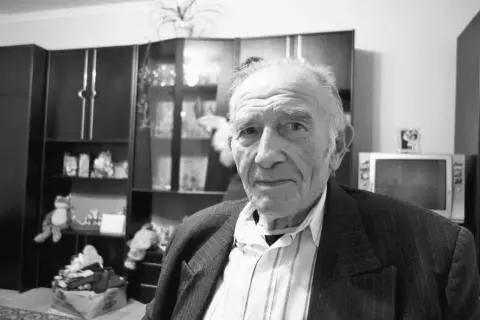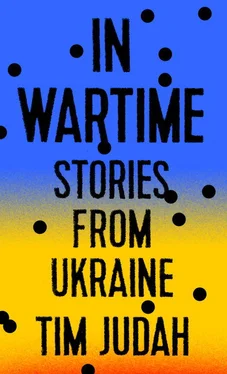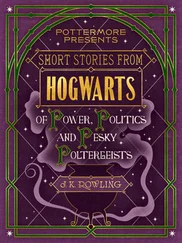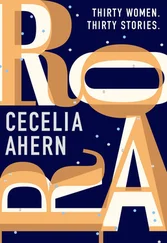You can see one of the first acts of the drama of the destruction of the old Lviv on YouTube. It is in Liberation , a 1940 film made by the Ukrainian Soviet filmmaker Alexander Dovzhenko. It gives the Soviet account of the taking of Lviv and western Ukraine, a “colony of Polish imperialism” in 1939. The war begins, we are told, at the behest of the “English imperialists,” and then the “artificial Polish state” ceases to exist. To patriotic music the Red Army, pursuing its “sacred duty” to liberate the Ukrainian and Belarusian peoples, pours over the border on September 17, 1939. We see crowds in Lviv cheering their liberators. Then we see happy people voting in October to elect assemblies (some dance in the streets, they are so happy about this) and stirring speeches are made when they convene. In Lviv the assembly meets in the opera house. On the right of a box close by the stage we can see Nikita Khrushchev, the Ukrainian party boss and future Soviet leader, who was sent by Stalin to oversee this operation. After that the action moves to Moscow where western Ukraine and Belarus are graciously accepted into the USSR on November 1, 1939. Stalin acknowledges the standing ovation of the assembled delegates. Finally the show moves to Parliament in Kiev, the same building as the one which houses today’s Verkhovna Rada, and after that, under the watchful gaze of Khrushchev, tens of thousands parade through Kiev carrying pictures of Stalin and other communist luminaries.
Nikita Khrushchev in Lviv opera house, standing at right and clapping. From the film Liberation , 1940.
As well as for performances, nowadays you can visit the opera house on a Thursday afternoon, and surprising numbers of people do. Outside, it is an exuberant neo-Renaissance affair and inside, a traditional meeting of deep red velvet and gold. On the ceiling of the auditorium is a roundel featuring ten naked dancing girls, swirling long diaphanous scarves around themselves. The girls and their opera house, which opened in 1900, are a poignant reminder of those final optimistic years before the First World War when no one in Europe had any conception that they were living in an era on which the final curtain was about to fall.
A middle-aged lady stands at the front to answer questions. Curious as to whether what took place here in 1939 is remembered, I asked her if Khrushchev sat “there” and point at a box. No, she replied immediately, he sat “in the royal box. You can see there is a crown above it.” If you look at Dovzhenko’s film, though, you can see that is not true, as he sat in the box below the royal one. Still, it is a good story, unless she was referring to another event. I asked if Stalin ever attended the opera and she said that, not only did he not, but he never even visited Lviv, bar once passing through the railway station and even then few people knew about that.
To a Westerner the episode here in the opera house, with strident speeches being made while Khrushchev the puppet master looked on, might seem like a minor historical detail. But in the wake of what has happened in Crimea, Donetsk and Lugansk it is necessary to remind ourselves of this. On March 16, 2014, in Crimea, under the watchful eye of Russian soldiers, a referendum was organized on joining Russia. Patriotic speeches followed, and Putin then graciously accepted Crimea into the fold. A similar referendum was held on May 11 in those parts of Donetsk and Lugansk controlled by pro-Russian rebels. In other words, obscure to us in the West, but in the Kremlin simply standard operating procedure, there in the textbooks to be looked at again, dusted off and tweaked for modern times.
When the Soviets marched into Lviv in 1939, an act that Soviet history commemorated as the “Golden September,” some Jews welcomed them, as did some Ukrainians, especially the poorer among them. For the Jews, Poland had been anti-Semitic and the Soviets were clearly better than the Nazis. Ukrainians thought they were now to be united with their brothers on the other side of the border. Over the ensuing period tens of thousands more Jews began to flood into the city and region fleeing from German-occupied Poland. The next twenty-two months were to be a bitter experience for all. Polish officers were sent to prison camps. Jews dominated commerce, so as the new regime confiscated businesses and closed down private enterprises, many Jews numbered among the biggest losers. Peasants in the countryside soon found themselves being forced into hated collective farms. But, with the Polish administration gone, some Jews and Ukrainians benefited as they got new jobs which had been mostly the preserve of Poles until then. With regard to Ukrainians, says Mihailo Romaniuk, a Lviv historian, within a year they were sorely disappointed by Soviet rule. Soviet propaganda had had an effect, which was why some welcomed the Red Army, despite the fact that something was known about the Holodomor and the purges, but “when they raised blue and yellow [Ukrainian] flags, the Red Army soldiers tore them off them and stamped on them.” Many western Ukrainians believed that, even though it was Soviet, there was a Ukrainian state, which they were now joining, “but they lacked information.” Anyone remotely politically suspect was arrested and sent east and that applied to Ukrainians, Jews and Poles. Romaniuk says that if Ukrainians greeted the Red Army in 1939 with flowers, in 1944 when they came back they “greeted them with weapons.”
What historians say is one thing, but luckily to this day there remain people here who well remember the war. It is their memory, what they remember and what they do not, that has helped shape the way people in the west of Ukraine (as anywhere else of course) see their past and interpret their present.
One is Mihailo Gasyuk, aged ninety-one. He is a bit hard of hearing but otherwise as bright as a button. He lives in the little town of Horodok, which is forty minutes’ drive due west of Lviv, on the road leading to the Polish border. The roads are poor here, and many villages have replaced or supplemented their Soviet war memorials with ones to the UPA, the nationalist Ukrainian Insurgent Army that carried on fighting the Soviets when they returned until the mid-1950s. Mihailo was a member and loves to talk about it. A spread of sandwiches and drinks has been laid on for visitors.

Mihailo Gasyuk. Horodok, November 2014.
When he was a boy Mihailo lived in a village very close to Horodok. Here, he recalled, there were “Ukrainians, Poles, Germans, Jews… everyone.” At school he studied in Ukrainian but he never went to secondary school, which was taught in Polish, because that was “only for rich people.” Polish boys threw stones at the Ukrainian boys and they fought. Between Jews, Poles and Ukrainians in Horodok it seems there was not much love lost.
When the Soviets arrived in 1939 people were not “glad” because they were Soviets, he said, but because they “got rid of the Poles.” They were suspicious and Mihailo remembers an incident when Communist Party officials came to lecture the locals on collectivization and on how well people would live. “One villager stood up and said that he had a tractor that had got stuck in the mud and it had been impossible to get it out, so he tied a goat to it and the goat pulled it out. Then the communist officials began to shout that he was lying and he said: ‘You have been lying for two hours.’”
After collectivization, when people were forced to give up their land, horses and cows, they were even gladder when the Germans arrived, but no one knew much about them or what to expect from them. The Germans quickly started appointing Ukrainians to positions of power and everywhere “Ukrainians were in charge.” They began recruiting a police force too. Mihailo tried this but did not like it and anyway he wanted to see the world so he volunteered to go and work in Germany. Later on Ukrainians were sent as slave laborers to Germany, rather than going there as volunteers. In 1943, when he returned he “met guys from the UPA,” which was the armed wing of the Organization of Ukrainian Nationalists (OUN), its political party. It was split, however, and its two wings were in conflict, but the one led by Stepan Bandera was to win. Bandera’s men had proclaimed independence in 1941 when the Nazis entered Lviv, but they were quickly rounded up and imprisoned by the Germans, for whom an independent Ukraine was not part of their plans. In his first actions Mihailo fought not the Germans but Soviet Partisans. In 1945 he was wounded fighting NKVD troops, was arrested and sentenced to death but survived as his sentence was commuted to twenty years in prison. Stalin died in 1953, and after Khrushchev’s denunciation of him three years later, Mihailo was released. It was hard to find a job at home though, so he worked in Crimea and then Debaltseve, in the east, as a miner. All he had wanted was “a free Ukraine and to fight all its enemies.” When he came home after being in prison, he remarked matter-of-factly that everything had changed. There were no more Jews and the Poles had gone too. It was good that the Poles had left, he said, because now there was no more animosity and they were neighbors, that is to say in Poland rather than literally next door.
Читать дальше













